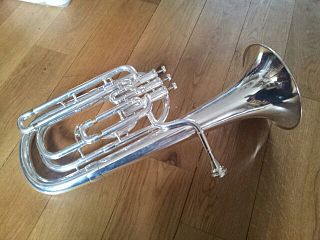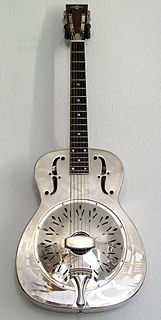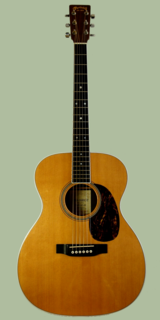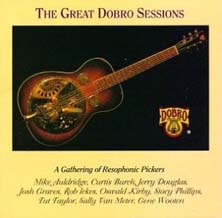Related Research Articles
The banjo is a stringed instrument with a thin membrane stretched over a frame or cavity to form a resonator. The membrane is typically circular, and usually made of plastic, or occasionally animal skin. Early forms of the instrument were fashioned by African-Americans in the United States, adapted from African instruments of similar design. The banjo is frequently associated with folk and country music, and has also been used in some rock songs. Several rock bands, such as the Eagles, Led Zeppelin, and The Allman Brothers, have used the five-string banjo in some of their songs. Historically, the banjo occupied a central place in African-American traditional music and the folk culture of rural whites before entering the mainstream via the minstrel shows of the 19th century. Along with the fiddle, the banjo is a mainstay of American styles of music, such as Bluegrass and old-time music. It is also very frequently used in traditional ("trad") jazz.

String instruments, stringed instruments, or chordophones are musical instruments that produce sound from vibrating strings when a performer plays or sounds the strings in some manner.

The baritone horn, or sometimes just called baritone, is a low-pitched brass instrument in the saxhorn family. It is a piston-valve brass instrument with a bore that is mostly conical but it has a narrower bore than the similarly pitched euphonium. It uses a wide-rimmed cup mouthpiece like that of its peers, the trombone and euphonium. Like the trombone and the euphonium, the baritone horn can be considered either a transposing or non-transposing instrument.

The ocarina is an ancient wind musical instrument—a type of vessel flute. Variations exist, but a typical ocarina is an enclosed space with four to twelve finger holes and a mouthpiece that projects from the body. It is traditionally made from clay or ceramic, but other materials are also used—such as plastic, wood, glass, metal, or bone.

A sound box or sounding box is an open chamber in the body of a musical instrument which modifies the sound of the instrument, and helps transfer that sound to the surrounding air. Objects respond more strongly to vibrations at certain frequencies, known as resonances. The frequency and strength of the resonances of the body of a musical instrument have a significant impact on the tone quality it produces. The air inside the chamber has its own resonances, and these interact with the resonances of the body, altering the resonances of the instrument as a whole. The sound box typically adds resonances at lower frequencies, enhancing the lower-frequency response of the instrument.

A resonator is a device or system that exhibits resonance or resonant behavior. That is, it naturally oscillates with greater amplitude at some frequencies, called resonant frequencies, than at other frequencies. The oscillations in a resonator can be either electromagnetic or mechanical. Resonators are used to either generate waves of specific frequencies or to select specific frequencies from a signal. Musical instruments use acoustic resonators that produce sound waves of specific tones. Another example is quartz crystals used in electronic devices such as radio transmitters and quartz watches to produce oscillations of very precise frequency.

The tenor guitar or four-string guitar is a slightly smaller, four-string relative of the steel-string acoustic guitar or electric guitar. The instrument was initially developed in its acoustic form by Gibson and C.F. Martin so that players of the four-string tenor banjo could double on guitar.

The mandolin-banjo is a hybrid instrument, combining a banjo body with the neck and tuning of a mandolin or violin. It is a soprano banjo. It has been independently invented in more than one country, being called banjolin and banjourine in English-speaking countries, banjoline and bandoline in France, and the Cümbüş in Turkey.
John Dopyera was a Slovak-American inventor and entrepreneur, and a maker of stringed instruments. His inventions include the resonator guitar and important contributions in the early development of the electric guitar.

A resonator guitar or resophonic guitar is an acoustic guitar that produces sound by conducting string vibrations through the bridge to one or more spun metal cones (resonators), instead of to the guitar's sounding board (top). Resonator guitars were originally designed to be louder than regular acoustic guitars, which were overwhelmed by horns and percussion instruments in dance orchestras. They became prized for their distinctive tone, however, and found life with bluegrass music and the blues well after electric amplification solved the problem of inadequate volume.

The National String Instrument Corporation was an American guitar company, that first formed to manufacture banjos and then the original resonator guitars. National also produced resonator ukuleles and resonator mandolins. The company merged with Dobro to form the "National Dobro Company", then becoming a brand of Valco until it closed in 1968.

The Regal Musical Instrument Company is a former US musical instruments company and current brand owned by different companies through the ages. By the 1930s, Regal was one of the largest manufacturers in the world.

An acoustic guitar is a musical instrument in the guitar family. Its strings vibrate a sound board on a resonant body to project a sound wave through the air. The original, general term for this stringed instrument is guitar, and the retronym 'acoustic guitar' distinguishes it from an electric guitar, which relies on electronic amplification. Typically, a guitar's body is a sound box, of which the top side serves as a sound board that enhances the vibration sounds of the strings. In standard tuning the guitar's six strings are tuned (low to high) E2 A2 D3 G3 B3 E4.

The Great Dobro Sessions is a 1994 country music and bluegrass album featuring an all-star line-up of 10 American resonator guitar players, produced by dobro players Jerry Douglas and Tut Taylor.

Beecher Ray "Pete" Kirby, better known as Bashful Brother Oswald, was an American country musician who popularized the use of the resonator guitar and Dobro. He played with Roy Acuff's Smoky Mountain Boys and was a member of the Grand Ole Opry.

Elderly Instruments is a musical instrument retailer in Lansing, Michigan, United States, with a reputation as a "megastore", a repair shop and a locus for folk music including bluegrass and "twang". Specializing in fretted instruments, including acoustic and electric guitars, banjos, mandolins, and ukuleles, Elderly maintains a selection of odd or rare instruments. Elderly is known as a premier repair shop for fretted instruments, as one of the larger vintage instrument dealers in the United States, and as a major dealer of Martin guitars in particular.
A resonator ukulele or "resophonic ukulele" is a ukulele whose sound is produced by one or more spun aluminum cones (resonators) instead of the wooden soundboard. These instruments are sometimes referred to as "Dobro ukuleles," however the term "Dobro" is currently trademarked by the Gibson Guitar Corporation.

A resonator mandolin or "resophonic mandolin" is a mandolin whose sound is produced by one or more metal cones (resonators) instead of the customary wooden soundboard. These instruments are sometimes referred to as "Dobro mandolins," after pioneering instruments designed and produced by the Dopyera Brothers, which evolved into a brand name. The trademark "Dobro" is currently the property of the Gibson Guitar Corporation. When Gibson acquired the trademark in 1993, they announced that they would defend their right to its exclusive use.

Bluegrass mandolin is a style of mandolin playing most commonly heard in bluegrass bands.

A vessel flute is a type of flute with a body which acts as a Helmholtz resonator. The body is vessel-shaped, not tube- or cone-shaped.
References
- ↑ "The banjo family". www.blues-banjo.com. Archived from the original on 2008-05-09.
- ↑ "Dojo by Gold Tone". GoldTone. Archived from the original on 2008-05-09.
- ↑ "Gold Tone Dobro Banjo Dojo". Folk of the Wood. 2007-03-13. Archived from the original on 2008-06-21.